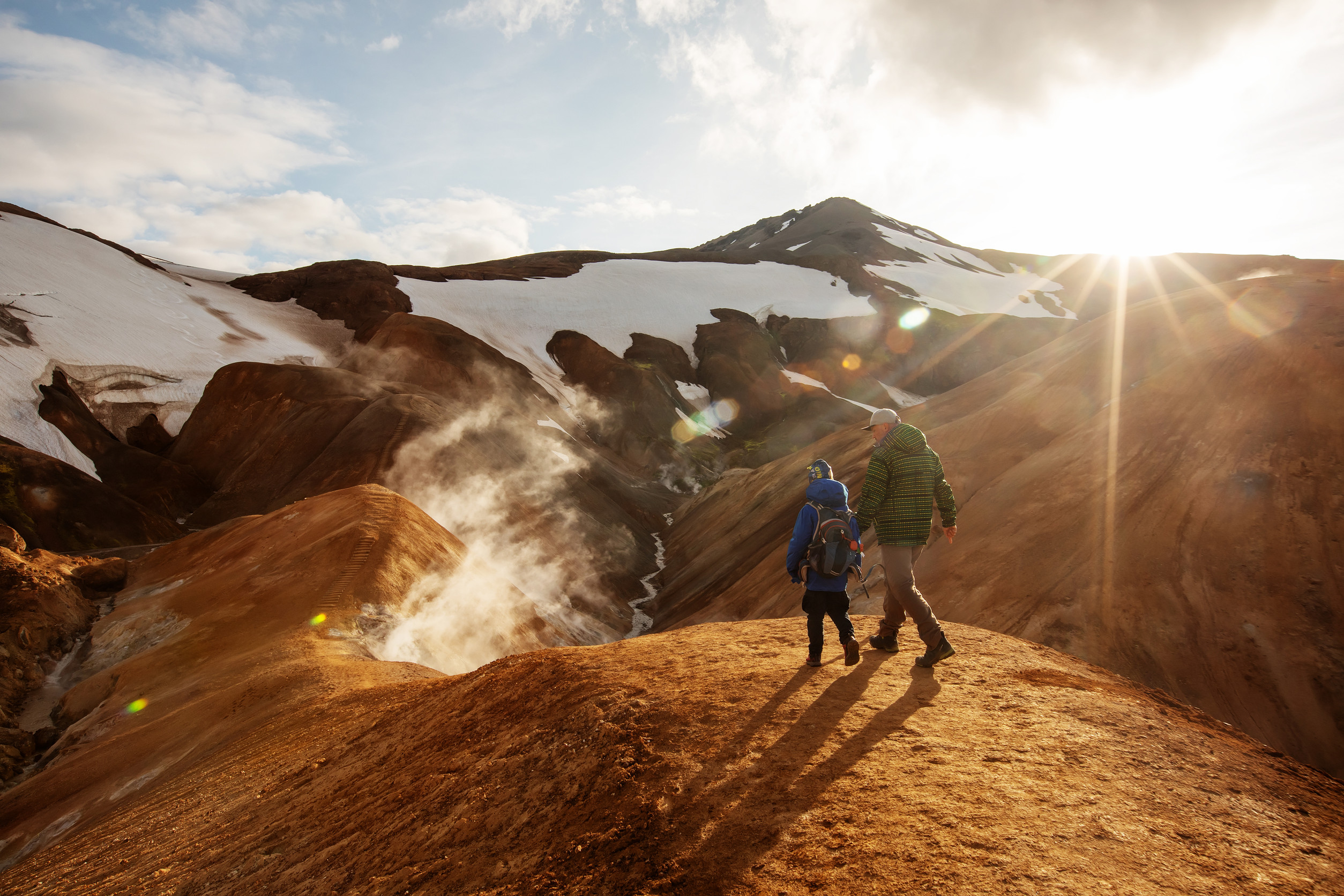BY THE OPTIMIST DAILY EDITORIAL TEAMIn a world where happiness in so many places is slowly declining, Iceland is going against the grain. According to the 2025 World Happiness Report, it’s one of the few countries in the top 20 where happiness is actually increasing. Since 2008, Iceland has seen a remarkable 9.
1 percent boost in reported well-being—a rise nearly unmatched by any other nation.Ranked third on the happiness scale this year (up from 18th in 2008), Iceland now tops global charts in social support and ranks highly in freedom and generosity. And with a population of just under 400,000, it’s punching well above its weight.

So, what makes Icelanders so joyful while many other nations are seeing a slump in spirits?Nature as a national therapistFor many Icelanders, the answer begins with the land itself. “From home, from work, it’s very easy to get to a national park or open spaces where we can hike, walk by the river, coast, or lakes,” says Hrund Gunnsteinsdóttir, author of the upcoming book InnSæi: Heal, Revive and Reset with the Icelandic Art of Intuition.The country’s dramatic natural environment—volcanoes, glaciers, hot springs, and wide open skies—offers not just beauty, but also emotional clarity.
Jessica Poteet, a geologist from the United States who moved to Iceland, says, “Being somewhere with volcanoes and Northern Lights and cotton candy-pink skies with snow-capped mountains in winter is a dream. I never take it for granted. It’s one of the key things contributing to my happiness.
”Even employers take note of this relationship with nature. On particularly sunny days, many workplaces offer employees a “Sun holiday,” encouraging them to spend the day outside hiking or skiing. In a world that often prizes productivity above all else, Iceland’s nature-first culture is a refreshing alternative.
A deep-rooted safety netBeneath the awe-inspiring landscapes lies another important contributor to Icelanders’ contentment: a strong social system that creates a foundation of stability.“During COVID, I lost my job. I was able to go on unemployment until I found a new job,” shares Brenna Elizabeth Scheving, an American expat.
She also benefited from Iceland’s generous parental leave policy: 12 months of shared leave between parents, regardless of gender or marital status. Adoption is covered, too.Kindergarten starts as early as age two, ensuring that families can return to work without the stress of unaffordable childcare.
These structural supports go a long way in creating a culture where people can live with more ease and less fear.Equality woven into daily lifePerhaps even more impressive is Iceland’s longstanding commitment to gender equality. The country has ranked first in the World Economic Forum’s Global Gender Gap Index for 15 consecutive years, and the results are felt across society.
“The government is run by women,” says Gunnsteinsdóttir. In fact, Iceland was the first country to democratically elect a female president in 1980. Gunnsteinsdóttir remembers the moment vividly: “I was six years old when she was elected president, and I didn’t necessarily conceive of a man being a president.
”The seeds of progress were sown decades ago. This year marks 50 years since the historic Women’s Day Off, when Icelandic women went on strike to protest inequality in pay and politics. “I’m truly grateful to these women and the men who supported them,” says Gunnsteinsdóttir.
“Where you have gender equality, the social, economic, and political aspects tend to be more stable and better for people and the natural surroundings.”Balancing tourism with well-beingThat doesn’t mean Iceland is without its challenges. The cost of living, particularly in Reykjavík, has risen sharply.
“The cost of living is steep, especially housing, which can be a struggle for both locals and expats,” says Kevin Mercier, a French photographer and longtime resident.Tourism has played a role in this rise. With 2.
3 million visitors in 2024 alone—nearly six times the country’s population—housing and infrastructure have been stretched. But many Icelanders believe the pros outweigh the cons. Tourism has brought improved roads, community access, and new economic opportunities.
Poteet points to the development of trails at the Fagradalsfjall volcano as a quick and welcome response to rising visitor numbers. The completion of the Ring Road, which now connects even the most remote areas, is another success. “It was great for everyone,” she says.
Meanwhile, hotels are leading with purpose. ION Hotels, founded by Sigurlaug Sverrisdóttir, boasts female-majority staff and a focus on sustainability. Hotel Ranga offers guests a “Live Like an Icelander” experience, taking them to ancient farmsteads and sacred wells.
Resilience in the face of changeAt the core of Icelanders’ rising happiness might be something less tangible but deeply ingrained: resilience. Gunnsteinsdóttir refers to the Icelandic word innsæi, which means both “the sea within” and “to see from the inside out.” It speaks to intuition, adaptability, and an inner compass shaped by living in a land that can shake beneath your feet.
“In recent years, we’ve had multiple eruptions and earthquakes. When you constantly feel the earth is shaking, it really reminds you that things can change quite rapidly,” she says. “When it comes to happiness, it encourages us to make the best out of what we have when things don’t go according to plan.
”From epic scenery to deeply held values, Iceland offers more than just beauty and tranquility. It offers a model of what a happier life might look like—one rooted in nature, fairness, and the strength to adapt. And in an increasingly uncertain world, that may be the most valuable lesson of all.
The post Why Icelanders are getting happier every year – and what we can learn from them first appeared on The Optimist Daily: Making Solutions the News..
Health

Why Icelanders are getting happier every year – and what we can learn from them

BY THE OPTIMIST DAILY EDITORIAL TEAM In a world where happiness in so many places is slowly declining, Iceland is going against the grain. According to the 2025 World Happiness Report, it’s one of the few countries in the top 20 where happiness is actually increasing. Since 2008, Iceland has seen a remarkable 9.1 percent [...]The post Why Icelanders are getting happier every year – and what we can learn from them first appeared on The Optimist Daily: Making Solutions the News.















